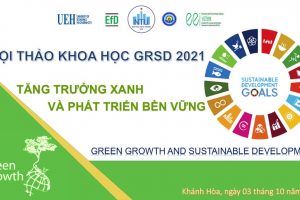[STBI-31-03-2016] Household vulnerability as low expected utility and responses to risks in rural Vietnam
Thang Vo
Hall H.001, UEH School of Economics
11:00 am, Thursday, 31-03-2016
Abstract
This paper investigates sources of household vulnerability and responses to risks in rural Vietnam with data from Vietnam Access to Resources Household Surveys (VARHS). We first adopt the vulnerability as low utility measure (VEU) to estimate and distinguish the sources of vulnerability. Then we use a multivariate probit model to examine the household’s behavior when coping with shocks, and finally we evaluate the effectiveness of the insurance mechanism. The main findings are that, (i) the utility of the average household is 71% less than the hypothetical situation without any risk or inequality in consumption, and idiosyncratic shocks contribute 50% of the loss; (ii) households depend heavily on informal coping strategies such as food consumption reduction, savings withdrawal, taking children out of school or capital depletion. The opportunity to borrow money from formal institutions is limited, while subsidies from the government or NGOs are available only in cases of natural disaster; and (iii) household consumption and income exhibit highly correlated variation, implying that existing informal insurance instruments are less effective than expected.
Presenter
Thang Vo is the PhD in economics candidate at Arndt-Corden Department of Economics, Australian National University. His recent studies focus on the topic of vulnerability and household welfare in Vietnam. Thang Vo is also a lecturer at School of Economics, University of Economics Ho Chi Minh City (UEH), Vietnam.


